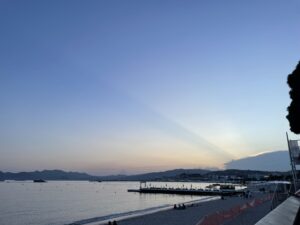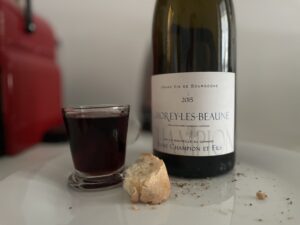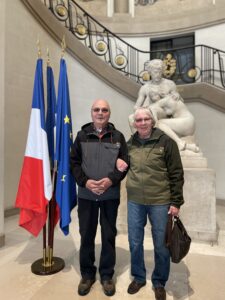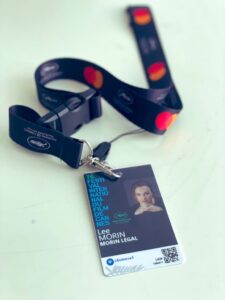
July 14th is La Fête Nationale for France, also known more colloquially in English as Bastille Day. It is the national day of celebration (literally translated from French) because it is the day that is recorded in French history as the day when the people of France rose up in protest against the ruling monarchy at the time, and established instead a representative government by its people. Sound familiar?
In the same year that our 1st United States Congress counted its first electoral college ballots, certifying George Washington as our first president, France’s people stormed the Bastille, issuing the Declaration of the Rights of Man and of the Citizen. This document reflected principles of individual freedom and democracy, is constitutional law in France, and was inspired by the philosophical teachings of the Enlightenment whose central doctrines were individual liberty and religious tolerance in opposition to absolute monarchy and Church dogmas. Thus, out of a desire for self-awareness, man recognized that civilization to be successful would need to submit to a rule of law, which law would be administered by its elected officials.
Although our general principles of individual liberty and freedom may be similar, the ways which we go about expressing them are not. The law is applied in the United States (except for in Louisiana, a former French colony) under a common law legal system, and in France (and Louisiana), under a civil legal system. The main thing to know about what distinguishes the common versus civil legal systems, is that one relies upon legal precedent and case law (i.e., prior rulings) to guide the outcome of a case, and the other strictly upon statutes and ordinances. There are certainly further nuances and distinctions between civil and common legal systems. Common legal systems originate in England while civil in Europe and are still maintained in France, Spain, and Germany, as well as in Africa, South America, Japan and China. For more information about civil law, check out this helpful article by Louisiana State University’s School of Law, entitled, “What is the Civil Law?”
Another way that our French-American heritage arises in our everyday life, is through citizenship. Once we have built the nation, and its body of laws enacted, we establish citizens, who carry out the day to day operations of living in a free society. Citizenship is an honor and a privilege, it carries with it certain benefits, but along with it, responsibilities. In the United States, it is possible to obtain a dual citizenship as I have with France, because one of my parents is a French national. One of my cousins is also hoping to obtain her French passport, because her grandma was French and she just has to ask her mom to go through the paperwork required by the consulate to apply for the dual option and voilà, she can apply for citizenship soon as her mom has hers. It is a chain of title that passes down through families, and is available to children in the U.S. with French relatives. I suggest if you have French heritage checking with the consulate to see if you qualify.

In addition to principles behind government, law, and national identity, we share so much rich culture with France, but the first thing I think of is food. La Gastronomique Française (the French way of eating or, Gastronomic meal of the French) is esconced by UNICEF on the Representative List of the Intangible Cultural Heritage of Humanity. Check out this entry by the United Nations and listen to what a real French meal will sound like! I just returned from spending a month in France, with family, in some of the oldest and most regal homes of the country, and promise you that the French way of eating is well preserved. Meals lasting 3, maybe 4 or 5 hours, and course after course of food made with pride and care. I also traveled to Lyon, the second largest city in France, where I enjoyed the best hamburger I had, in the Lyonnaise style – served on a brioche bun, with carmelized onions, cheese, and two patties the size of my hand, made from Charolais cattle. I traveled to the 76th Marché du Film and Féstivale de Cannes, and enjoyed filet of sole, seafood risotto, and giant shrimp on the French Riviera.
In addition to food culture, we share film culture. Cannes Film Festival this year hosted the most ever, about 13,000 people total. It was thrilling to screen world premiers in La Grande Théâtre Lumière, in French with English subtitles. I realized I could simultaneously translate from French and compare the English translations, and I found certain words deleted or substituted a remarkable insight. Language is how we communicate over audio or video mediums, and our language frames our consciousness in a way that reflects the values and norms of our culture. For example, English says, “I burst into tears,” but French says, “I melt into tears.” It is these tiny distinctions that give the meanings behind cinema dialogue and their corresponding subtitles in film such power over audiences to interpret filmmaker messages.

As a direct descendant of veterans from WWI and WWII, I would be remiss not to mention our deep, profound history with France over our military battles, where we as brothers and sisters fought evil at its doorstep. I am proud to share such a valued tradition of upholding cherished principles of individual freedom and liberty with another nation that holds such a prominent place in our modern world. I hope that together we continue to defend the ideals we hold most precious as we both celebrate our national days in the same month, ten days apart. Our flags each are red, white and blue (though the French would say, “blue, white, and red”) as the same colors of our flag appear on the “Tricolour,” the flag of France.
In closing, if you want to attend local, French cultural events, you can join a local Atlanta group called L’Alliance Française. They are currently hosting a cinema club each month and we just screened a film last week at their Peachtree Center Avenue location. If you are curious about applying for citizenship, then contact Le Consulat Général de France à Atlanta, who is located next to Lenox Mall. Finally, if you want to learn the French language for FREE, then I highly recommend a podcast called InnerFrench. Thank you very much for spending time with me today reading about our dual heritage and Vive La France et USA!




